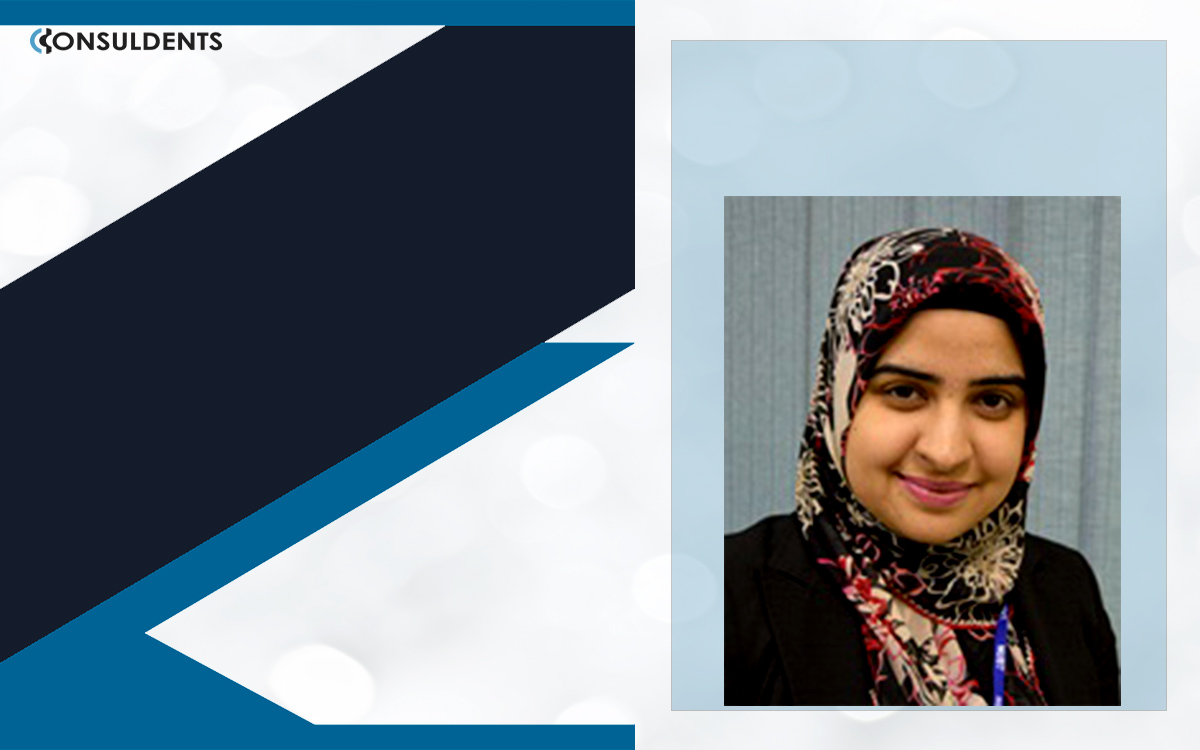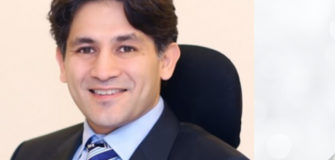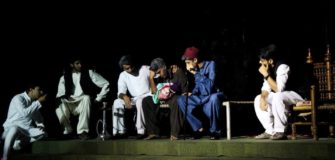Meet Shah Rukh Abbas: the woman who is using nanoparticles to solve some of the biggest mysteries of life
Share

An alumna of the University of Cambridge, Dr. Shah Rukh Abbas is currently working as an assistant professor in the Industrial Biotechnology department of Atta-ur-Rehman School of Applied Biosciences (ASAB), at the National University of Sciences and Technology (NUST), Pakistan.
She specializes in nanoparticles, and currently has a lot of projects underway, most of which are aimed at improving the contrast of non-invasive medical imaging techniques, and targeted drug-delivery therapeutic approaches.
Consuldents recently had the privilege of sitting down with Dr. Abbas for an interview, which serves to highlight her very important work in the field of bioimaging techniques.
Below is an edited excerpt from the interview that Consuldents had with Dr. Abbas.
Counsuldents: Can you please tell us a little bit about yourself?
Dr. Abbas: I am from Nowshera, it’s a small town, around a forty-minute drive from Peshawar. I got my basic schooling from Nowshera, and then went to the University of Peshawar. I graduated from the University of Peshawar in 2009, with a gold medal, and then went on join the Quaid-e-Azam University’s Master’s program, for a short period, before ultimately going off to Cambridge in 2010. I came back in 2014, and was fortunate enough to be hired by ASAB, and I have been working over here since.
Consuldents: Why did you choose Biotechnology?
Dr. Abbas: I have always been very fascinated by science, and I remember from a very young age, I was very interested in science-related books, which my family used to gift to me. There was this one book which presented some major findings of a scientist, and I remember that after reading that, I just went “I have to have my name up here in this book”.
By the time I graduated from high school, and wanted to be a medical doctor. However, like most of the students here, I got rejected by the med-schools. I was really depressed over it, but a friend of mine forced me into the Biotechnology program of University of Peshawar, and within a couple of months of getting in, I just started loving the whole thing, mostly because I had the best teachers one could ever ask for. Ever since then, I just became immersed in the field, and here we are today.
Consuldents: What is it that you worked on in Cambridge?
Dr. Abbas: My doctoral was focused on the synthesis of natural-polymer-based, targeted microbubbles, which can be used as ultrasound contrasting agents. Most researchers use silica based, streptavidin targeted microbubbles; these are efficient for research, but aren’t compatible with our body- thus they would never get approved by FDA- which is mainly why I switched to using a natural polymer for the source of bubble creation.
I genetically engineered MCherry (a fluorescent protein), with R5 peptide, and attached it with three different kinds of microbubbles- including the silica based ones, and my biopolymeric bubbles. The results spoke for themselves, as the MCherry-R5 hybrid worked incredibly well with my biopolymer based bubbles.
Moreover, I also worked on a social enterprise known as Khadija Business Park, which also won the 1st place in Cambridge University Entrepreneurs- a very competitive business competition, organized by the University of Cambridge.
Consuldents: Can you elaborate on what exactly is Khadija Business Park?
Dr. Abbas: Right after I left for UK in the April of 2010, there were massive floods in Pakistan in August of 2010. I remember I was giving my cousin- who is a professional pilot- coordinates so that he can see what had become of our house, and figure out where my family was, because I hadn’t had any contact with them for about a week; it was only after the level of water dropped that we were able to locate them. They weren’t able to save anything except for our educational certificates- it was so bad that I sent all my clothes to my sister. The whole ordeal took a real toll on me, and I remember that I couldn’t eat anything for about a month. But my family wasn’t the only family that suffered; a lot of people lost more than just their material belongings.
Khadija Business Park is a project that aims to rehabilitate the flood affectees; we provide the right connections, and the training required to secure grants and/or loans, whilst the founders of the start-up get to create jobs, instead of seeking them. The only catch for the founders of the start-up is that they have hire their workforce from flood-affected areas. This way, we not only get to help two different kinds of people, but also strengthen the economy of the country as well.
Consuldents: What is currently keeping you busy?
Dr. Abbas: Currently I am working on several different projects. Firstly, I am working on developing microbubbles as contrasting agents; Pakistan is lagging very far behind, when it comes to bioimaging. We are still using first generation contrasting agents, whereas, in the first world, they have now moved on to biopolymeric contrasting agents- I ones I worked on during my time in Cambridge. I am working with Al-Shifa Hospital on this.
Secondly, encapsulating anti-cancer drugs- which may otherwise be toxic in large quantities- in microbubbles, and using the bubbles for drug delivery is another area of my work, here at ASAB. This approach seems way more promising, and we have had had several different cancerous cell lines react much more efficiently to these encapsulated drugs, than to the regular, non-encapsulated drug delivery therapeutic techniques; I recently also submitted a paper on this.
Thirdly, I am currently collaborating with a student of mine, on a project for delivering drugs to treat choroidal neovascularization (an outgrowth of new blood vessels from the choroid layer of the eye). The current treatment for it is using ocular injections to deliver the drugs. Now, injections introduce a lot of other problems: not only are they a huge problem for most people- because almost all of us suffer from some degree of belonephobia- but they also risk causing further infections. Most of the drugs used for treatment of choroid neovascularization are hydrophobic, which is why we used liposomes for drug delivery. Crossing the hydrophilic tear barrier was a challenge, which we overcame by coating the liposomes with Chitosan (a hydrophilic polysaccharide). We tested this model on mice, and we have received positive results that corroborate our hypothesis.
Moreover, I am also working on creating microfluidic chips, that can be incorporated into machines, which can then automatically synthesis the microbubbles, because manufacturing them manually is quite a rigorous process.
Lastly, my major work out here revolves around biosensors. I am working on developing biosensors to monitor diseases. A student of mine, and myself, managed to create an electrochemical platform on an ITO coated glass slide, and used a peptide aptamer (a peptide that binds to a specific target molecule), from Rheumatoid arthritis to functionalize it. Upon adding serum from patients, and healthy control subjects, our system was able to provide distinct accurate results, in under five minutes. I am also working on developing one such biosensor for a major infectious disease- Tuberculosis. The project is underway, and there are certain obstacles in the way which are holding us back, at the moment, but hopefully we will be able to get these biosensors out for wide-scale production soon.
You can find out more about Dr. Shah Rukh Abbas’s work here.
Consuldents: What advice do you have for students?
Dr. Abbas: You need to set your mind to something, and then work hard to achieve it. I always tell my students that ignorance is a bliss, because you cannot fear something whose existence you do not acknowledge. You do not even know how many opportunities you are missing out on, just because you were afraid getting rejected.
We, as a nation, have chosen to accept the things that we are being told, instead of testing them, and finding out the truth for ourselves. I always encourage students to question, and test, everything that they deem doubtful- even if it is published in Nature, or Science. The same goes for quite literally everything else. People demotivate us by telling us about failures, and we cave in to that, and never even take a chance. Just because only one in every twenty applicants makes it to Harvard, doesn’t mean that you can’t be that one applicant.
When I first joined Cambridge, I did not exactly realize what I was getting into. Sure, I understood that I was going to one of the most competitive places on earth, but I could never quite comprehend exactly how challenging it would be, until I got there. However, this did not discourage me. Instead, it only got me excited, and I was always ready to take on any challenges whatsoever, without realizing exactly how difficult would they be, and that worked out great.
Freedom to do what you want is arguably one of the most important things. I am indebted to my parents for never holding me back from anything, unlike most Pakistani orthodox parents do. They let me pursue whichever field, or institute, I wanted, and for that I am eternally grateful to them, because, without their undying support, I never would have been the person I am today.
In the end, I would just like to say that please do not demotivate yourself, that’s other people’s job; don’t be a mindless follower, be a wise intellectual; be free, and do whatever you feel like doing, for that’s the best thing you can do for yourself, because not only would you excel at that, but you would also be directly, or indirectly, helping many other people, thus ensuring that you do not only make your own life better, but also that of many others.






I would like to show my passion for your kindness supporting folks that
absolutely need help with the question. Your real dedication to getting the message up and down appears
to be certainly effective and have specifically permitted ladies much like me to realize
their targets. Your personal important information signifies a great deal a person like me and still more
to my colleagues.